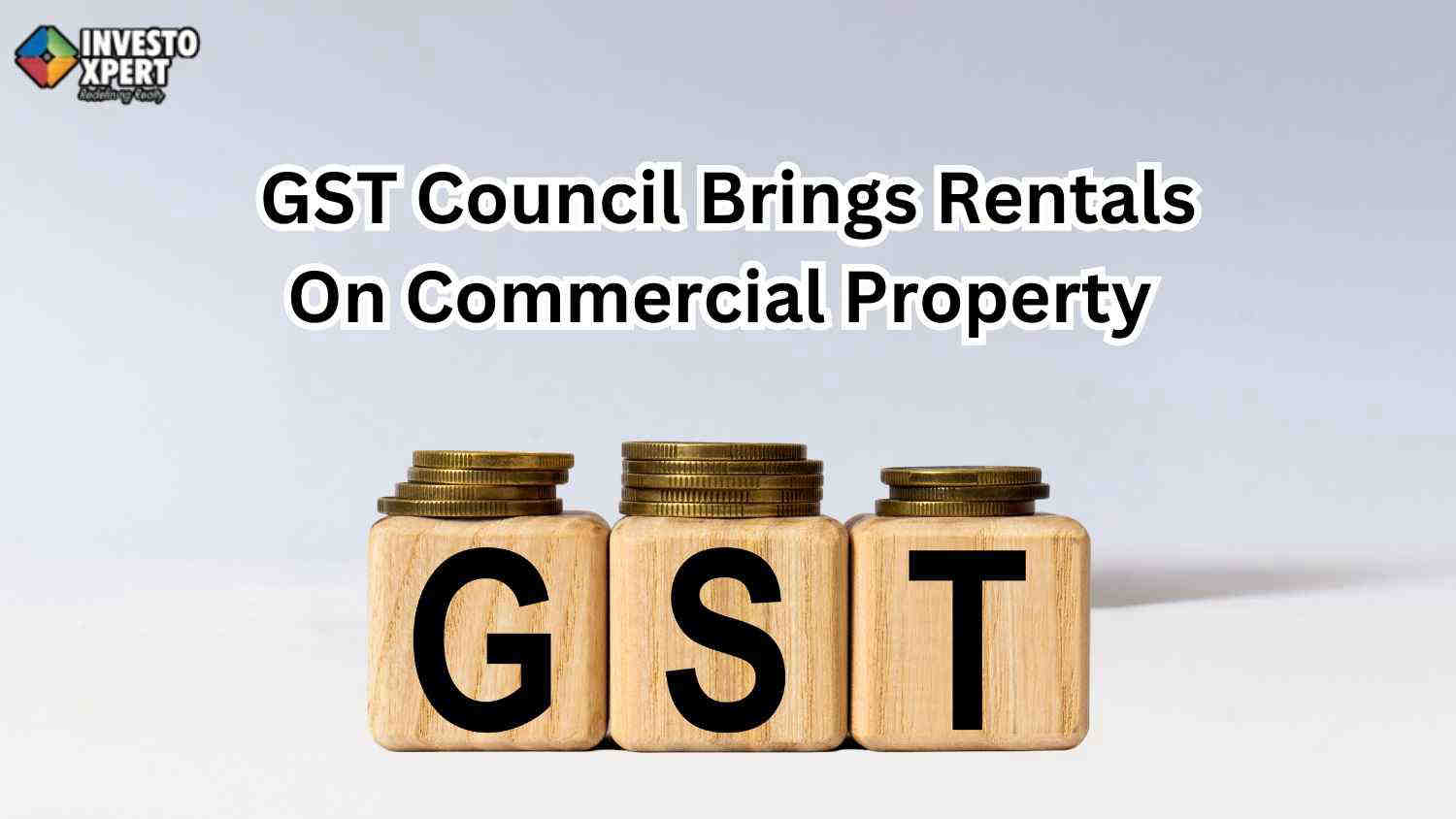GST Council Brings Rentals On Commercial Property Now Under Reverse Charge Mechanism
By Investoxpert | 14 Sep 2024 | Guide

During its 54th meeting, the Goods and Services Tax (GST) Council provided additional clarification about the tax issue of preferential location costs. In an attempt to stop income leakage, the GST Council in New Delhi voted on September 9 to implement the Reverse Charge Mechanism (RCM) on commercial property rented by an unregistered person to a registered person. The government's tax revenue is expected to increase as a result of the most recent modification addressing the taxation of rental income from commercial property that was notified by the Goods and Services Tax (GST) Council. However, industry analysts say that tenants may find this to be expensive.
Reverse charge mechanism (RCM) has been introduced for renting commercial property owned by an individual who is not registered with the GST Authority. This implies that the Impact of GST on real estate will need to be deposited by the commercial tenant.
In the past, there was no GST in certain circumstances. The landlord was responsible for paying 18% GST if they were a registered entity. This also applied to situations in which residential real estate was used for business endeavors. It was also stated that this significant policy shift places the GST payment responsibility on tenants, enhancing government GST collection and marking a notable advancement in commercial property rental regulations.
Additionally, the GST Council determined that the reverse charge mechanism will now apply to commercial property. The landlord, who is the supplier of the commercial rental services, will no longer be liable for paying GST to the tenant, who is the recipient, under the RCM. Revenue Secretary Sanjay Malhotra said in their statements that renting of commercial properties was brought under reverse charge mechanism.
Get All Insights On The Session Of GST Council
In New Delhi, the 54th session of the Goods and Services Tax Council took place and came to an end under the direction of Finance Minister Nirmala Sitharaman. State finance ministers and other senior officials from the ministry of finance attended the meeting. Also, determining the GST liability on all of their leased locations will increase compliances for registered taxpayers due to the decision to bring renting of commercial property from unregistered suppliers under reverse charge. By making the rental of any property taxable if utilized for business purposes, regardless of the owner's GST registration status, this action aids the government in raising tax money.
The GST payable by the tenants of these properties will now be increased. Both the Center and the landlord benefit from it, but tenants will have to take the hit. Although the rate for this has not yet been disclosed, industry insiders predict that it will likely be 18%. It would bring tax parity (with registered commercial real estate) if an 18% rate is announced.
Clarifies On Tax Treatment Of Preferential Location Charges
The GST Council has provided clarification regarding the tax treatment of preferential location charges. It has been stated that the PLC, which is paid in addition to the price of building property, is considered a part of the construction services supply and should be subject to the same tax rate as construction services.
Preferential location charges, or PLCs, are paid in addition to consideration for the construction services of residential, commercial, and industrial complexes prior to the issuance of completion certificates. These charges are naturally bundled with the provision of construction services, making them eligible for the same tax treatment as the primary supply, which is construction services. This is to be made clear, according to a government statement.
What is PLC?
Preferential position Charges (PLC) in real estate are fees that the builder charges the buyer in exchange for giving a certain unit inside a complex or building a preferred or superior position. There is a 5% tax on residential buildings and a 12% tax on commercial construction. The question about PLC's taxability was whether it should be considered a component of construction services and subject to the appropriate rates of 5% or 12%, or if it should be considered a separate and distinct service subject to tax at the regular rate of 18%.
Under the former service tax scheme, there have been rulings that have been favorable, holding that PLC and construction services should be considered "bundled services." Under the GST framework, there were, nevertheless, a small number of unfavorable Advance Rulings that determined PLC to be a distinct service subject to tax at the higher rate of 18%. Thus, by removing any uncertainty regarding PLC's taxability, this explanation will at last allay the worries of builders.
Conclusion
The GST Council has implemented a reverse charge mechanism for rentals on commercial property. Thus, for more information or any other query regarding real estate, feel free to contact InvestoXpert at 9880083870 or mail us at [email protected].
Read More: 2 BHK in Noida Extension
Read More: 3 BHK in Noida Extension
Read More: 4 BHK in Noida Extension
Read More: 2 BHK in Greater Noida West
Read More: 3 BHK in Greater Noida West
Read More: 4 BHK in Greater Noida West
Read More: 2 BHK in Noida Expressway
Read More: 3 BHK in Noida Expressway
Read More: 4 BHK in Noida Expressway
Read More: Godrej Properties Noida
Lets Get Your Dream Home
I authorize InvestoXpert and its representatives to Call, SMS, Email or WhatsApp me about its products and offers. This consent overrides any registration for DNC / NDNC.